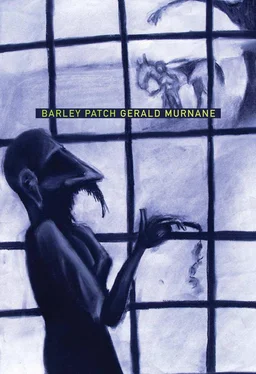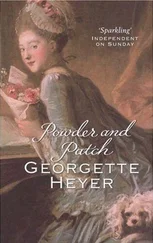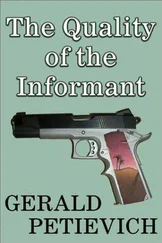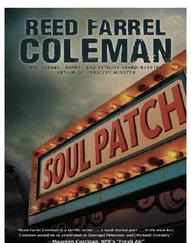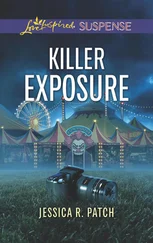Gerald Murnane - Barley Patch
Здесь есть возможность читать онлайн «Gerald Murnane - Barley Patch» весь текст электронной книги совершенно бесплатно (целиком полную версию без сокращений). В некоторых случаях можно слушать аудио, скачать через торрент в формате fb2 и присутствует краткое содержание. Год выпуска: 2011, Издательство: Dalkey Archive Press, Жанр: Современная проза, на английском языке. Описание произведения, (предисловие) а так же отзывы посетителей доступны на портале библиотеки ЛибКат.
- Название:Barley Patch
- Автор:
- Издательство:Dalkey Archive Press
- Жанр:
- Год:2011
- ISBN:нет данных
- Рейтинг книги:5 / 5. Голосов: 1
-
Избранное:Добавить в избранное
- Отзывы:
-
Ваша оценка:
- 100
- 1
- 2
- 3
- 4
- 5
Barley Patch: краткое содержание, описание и аннотация
Предлагаем к чтению аннотацию, описание, краткое содержание или предисловие (зависит от того, что написал сам автор книги «Barley Patch»). Если вы не нашли необходимую информацию о книге — напишите в комментариях, мы постараемся отыскать её.
Barley Patch — читать онлайн бесплатно полную книгу (весь текст) целиком
Ниже представлен текст книги, разбитый по страницам. Система сохранения места последней прочитанной страницы, позволяет с удобством читать онлайн бесплатно книгу «Barley Patch», без необходимости каждый раз заново искать на чём Вы остановились. Поставьте закладку, и сможете в любой момент перейти на страницу, на которой закончили чтение.
Интервал:
Закладка:
The chief character was hardly more than a boy when he set out for the Riverina district but he intended to become a writer of poetry or, perhaps, prose fiction, and also a mystic. He had come across the word mystic in his reading and had interpreted the word in his own way. He did not understand until a few years afterwards that his notion of prayer and meditation was hardly different from his notion of writing. The writer struggled to discover, in some far part of his mind, subject-matter fit for poetry; the mystic struggled to glimpse God or heaven. (The chief character would not have conceded, when he set out for the Riverina district, that what the mystic saw, or hoped to see, was an image or images in his mind.)
The daily doings of the chief character while he lived in the building of two storeys in the Riverina district would have been no part of my abandoned work of fiction. He lived in the building for twelve weeks before returning to Melbourne and becoming employed as a clerical officer, so called, in a building of many storeys. While he lived in the building of two storeys, he had seemed to be accepted by the seven young men who were his fellow-novices and by the priests who were his instructors and his spiritual director. This last-mentioned man had even seemed disappointed when the chief character had announced that he wanted to leave the building of two storeys, although the man had not pressed him to stay.
The chief character wrote only a few notes for a poem while he lived in the building of two storeys. The novices followed strictly the Rule of the religious order; the daily time-table allowed him no time for poetry. Several times during his stay, the chief character wondered whether it would have been better for him as a writer of poetry if he had applied to join the Cistercian order, even though their monastery was in hilly country not far from Melbourne. As for his striving to be a mystic, he had only to close his eyes in the choir stalls in the chapel and numerous images would appear to him, but he was disappointed by their simplicity and by their seeming to be derived from the illustrations on the holy-cards that he had owned as a child or from the subject-matter of the stained-glass windows that he had stared at as a child. Once only, towards the end of his stay in the building of two storeys, he seemed to see certain images the origins of which he could not readily have explained. He had undertaken an ambitious task. He had understood from an early age that the ceremony of the Mass was a sacrifice which pleased God and made that Being better disposed towards the persons who had taken part in the ceremony. But he had never understood the technical details, so to call them, of the sacrifice: who or what was offered and by what means; why the offering was likely to appease God. During the periods set aside for so-called spiritual reading, the chief character searched through books of theology for answers but found only vagueness. Even Thomas Aquinas, reputedly the greatest of theologians, had had to concede that the exact workings of the sacrifice of the Mass were a mystery.
One morning during his last week in the building of two storeys, the chief character was straining to see in his mind some or another visual equivalent of the mystery mentioned in the previous paragraph when he lost sight of the usual images of crucifixes and chalices and wafers of unleavened bread and bearded deities looking down from on high. In place of these predictable images, he saw in his mind while he knelt with his colleagues in the chapel certain details of the image of a mounting-yard at a crowded and well-appointed racecourse. Perhaps twenty handsome horses were being led around the perimeter of the yard by their strappers. On the rectangular lawn at the centre of the yard, the owners and trainers conferred in small groups. At any moment, the glass doors of the nearest building would be flung open and the jockeys would step out and would stride onto the rectangular lawn where each jockey would join one or another of the conferring groups.
At this point in the work of fiction that had never been finished, the narrator would have reported that the chief character had attended several race-meetings before he had arrived in the Riverina district and that he had been much affected at those meetings by the sight of the horses parading in the mounting yard. While the horses paraded and while the owners and the trainers and the jockeys conferred, the chief character had been able to foresee many possible outcomes of the race about to be run. Almost every conferring group might have had grounds for hoping to win. Almost every owner might have looked with pride at the jacket worn by his jockey. The colours of the jacket would have been chosen to suggest the achievements or the distinctive qualities or tastes of the owner. Perhaps a few sets of colours hinted also at the distinctive landscapes of the region from which the horse and its owner and trainer had arrived. For as long as the horses merely paraded, it was possible to foresee almost any one of the coloured jackets returning ahead of all the others; almost any owner and trainer having their hopes fulfilled. The race was still to be run. Each contestant still deserved admiration.
On the morning during his last week in the building of two storeys when the image-horses paraded in the mounting-yard in his mind, the chief character understood, in the way that he understood certain matters in his dreams, that one of the horses was owned by no less a personage than God. From this, of course, the chief character understood further that one of the many men standing on the rectangular lawn, each wearing a suit and a tie and a grey felt hat and each listening impassively or speaking guardedly or glancing about anxiously, must have been God incarnate, the second Person of the Holy Trinity.
For weeks past, the chief character had been straining often to see in his mind images explaining some of the so-called mysteries of his religion. None of what he had seen had been half so clear and so eloquent as the image of the mounting-yard. The image was no more stable than any other image in his mind, but whenever he was able afterwards to see it wholly or even partly, he tried in all seriousness to interpret it. He decided that a thoughtful racegoer could probably give a clearer account of such matters as the mystery of the incarnation and the sacrifice inherent in the Mass than could a theologian. If God were to take his chance as an owner of racehorses, He would experience the gamut of human emotions. And what sacrifice could bring a person closer to God than that a person should risk a large sum of his or her hard-earned money by betting on God’s horse at its every start?
In one respect, the chief character was left dissatisfied by his mounting-yard imagery. He had no way of knowing which of the owners was the Son of God. He, the chief character, supposed his best means of identifying God was through His racing colours. Not all the jockeys were clearly visible among the knots of conferring owners and trainers and the parading horses, but the chief character was somewhat persuaded that Almighty God was represented by a purplish blur of jacket and sleeves on the far side of the rectangular lawn.
The building of two storeys in the Riverina district was to have been the setting, as it were, of at least two sections of my unfinished book. One of those two, if ever I had written it, would have differed little from the following seven paragraphs.
On every day except Sunday, each of the novices in the building of two storeys dusted the parlour or the library or polished the parquetry in one or another corridor or otherwise helped with the upkeep of the building. On a certain Saturday afternoon in April, when the chief character was already thinking of leaving the building and returning home, and when he was at the handle of an electric floor-polisher in the upper-storey corridor where the priests had their rooms, he heard a familiar sound. The sound came from behind the closed door of one of the old, retired priests of the order.
Читать дальшеИнтервал:
Закладка:
Похожие книги на «Barley Patch»
Представляем Вашему вниманию похожие книги на «Barley Patch» списком для выбора. Мы отобрали схожую по названию и смыслу литературу в надежде предоставить читателям больше вариантов отыскать новые, интересные, ещё непрочитанные произведения.
Обсуждение, отзывы о книге «Barley Patch» и просто собственные мнения читателей. Оставьте ваши комментарии, напишите, что Вы думаете о произведении, его смысле или главных героях. Укажите что конкретно понравилось, а что нет, и почему Вы так считаете.
